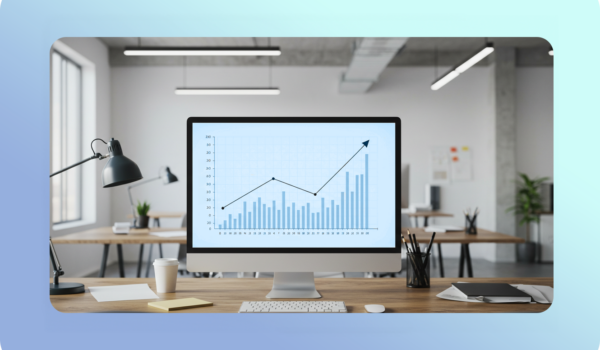
The landscape of accounting is changing fast, and AI is at the center of it.
In our recent expert panel discussion, we brought together industry leaders to explore how AI and automation are reshaping the accounting profession, what businesses need to do to prepare, and what the future holds.
If you missed the live session, here’s a recap of the most important takeaways.
1. CFOs are becoming data-driven strategists
The role of the CFO is evolving. Instead of just closing the books and working in reactive-mode, finance leaders are now leveraging AI to drive business strategy and are seen more as Chief Strategy Officers.
How is technology supporting this transition?
- AI enables real-time financial insights for better decision-making
- Predictive analytics help forecast cash flow and mitigate risk
- Automated workflows eliminate manual accounting tasks
“The CFO is now the hub where all financial data converges. AI is empowering finance teams to provide proactive, strategic insights instead of just historical reports.” — Jack Robbins, Piper Sandler
💡 Action Step: Start by integrating your accounting and operations data into one unified platform to gain a real-time view of business performance. Learn more here.
2. AI & Automation are addressing the accountant shortage
AI won’t replace accountants. But accountants who use AI will replace those who don’t.
The accounting profession is facing a 17% decline in CPAs, leading to labor shortages and increased costs. AI-driven insights and advanced automation are not only filling the gap but are the driving force behind the next wave of accountants.
One of the biggest concerns about AI in accounting is whether it will replace jobs. Our panelists tackled this head-on, emphasizing that AI is not here to replace accountants—it’s here to enhance their roles by eliminating repetitive, manual tasks and providing advance insights into performance.
The next wave of employees expect to do less manual processing and play a bigger role in strategic work. AI and advanced automations support this growing change. The current workforce will benefit from upskilling in this area and will be the leaders in innovating the accounting and finance industry.
“Accounting leaders need to embrace AI to attract and retain talent. Today’s workforce expects automation, not endless spreadsheets.” — Carly Crossland, Accounting Seed
💡 Action Step: Identify high-volume manual tasks (like invoice processing) that can be automated immediately. Not sure where to start? Try the AR Automation Savings Calculator.
3. Non-negotiable: AI success starts with clean, centralized data
AI is only as good as the data it’s fed. If financial data is scattered across multiple systems, AI won’t be effective. Businesses must have structured, accurate financial data before they can fully leverage AI-driven insights and automation.
Companies relying on outdated, disconnected systems will struggle to get the full benefits of AI. Investing in a connected, cloud-based accounting solution is the first step toward AI readiness.
“The biggest challenge with AI adoption? Disconnected data. Unifying accounting, operations, and sales data in one system is the key to success.” — Pete Lambert, CFO at Accounting Seed
💡 Action Step: Ensure your accounting platform integrates seamlessly with your CRM and other business systems. Learn more about Accounting Seed built on Salesforce.
Want a deeper dive? Watch the webcast on-demand.
See Accounting Seed in action
Get a close-up view of how accounting on Salesforce can eliminate the need for costly integrations—and silos of mismatched information—by sharing the same database as your CRM.


